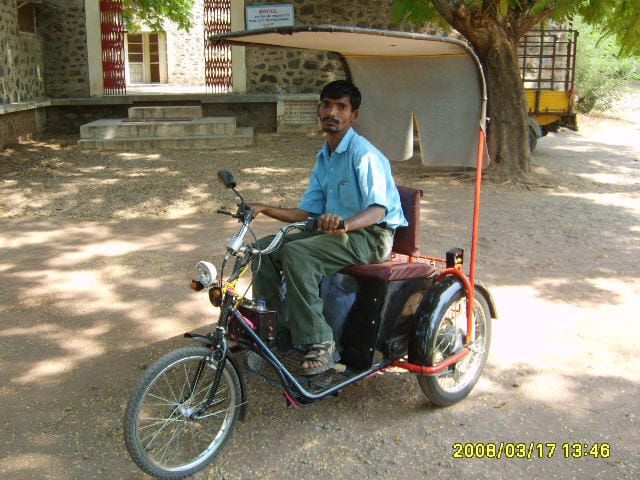n the bustling streets of cities across the globe, hand rickshaw pullers have long been an iconic sight, navigating through traffic with their human-powered vehicles, often enduring physical strain and facing economic challenges. However, in recent times, a transformative initiative has emerged, offering these hardworking individuals a pathway to modern transportation solutions: e-vehicles on loan.
This innovative idea not only addresses the immediate needs of hand rickshaw pullers but also contributes to broader goals of sustainability and social empowerment. By providing e-vehicles on loan, stakeholders are not just offering a mode of transport; they are fostering a sense of dignity and autonomy among these individuals, empowering them to navigate urban landscapes more efficiently and comfortably.
The benefits of this initiative are manifold. Firstly, e-vehicles significantly reduce the physical strain on hand rickshaw pullers, who often endure long hours of laborious work in harsh conditions. With electric assistance, the burden of pulling heavy loads through crowded streets is alleviated, leading to improved health and well-being for these individuals.
Moreover, e-vehicles represent a leap towards sustainable transportation. By replacing traditional hand rickshaws with electric counterparts, the initiative reduces carbon emissions and mitigates the environmental impact of urban mobility. This transition aligns with global efforts to combat climate change and build greener, more resilient cities.
Furthermore, the provision of e-vehicles on loan opens up new economic opportunities for hand rickshaw pullers. With access to modern transportation solutions, they can expand their reach, serve more customers, and potentially increase their earnings. This economic empowerment not only uplifts individuals but also strengthens local economies by fostering entrepreneurship and innovation within the informal sector.
Additionally, the adoption of e-vehicles in this context underscores the importance of inclusive urban planning. By recognizing the diverse needs of marginalized communities such as hand rickshaw pullers, policymakers and stakeholders demonstrate a commitment to creating inclusive and equitable cities. This inclusive approach to transportation planning ensures that no one is left behind in the transition to sustainable mobility.
However, while the introduction of e-vehicles holds great promise, it also presents challenges that must be addressed. Chief among these is the need for infrastructure development and supportive policies to facilitate the widespread adoption of electric transportation solutions. Investments in charging infrastructure, regulatory frameworks, and financial incentives are essential to ensure the success and scalability of initiatives aimed at empowering hand rickshaw pullers with e-vehicles.
In conclusion, the provision of e-vehicles on loan to hand rickshaw pullers represents a significant step towards sustainable mobility and social empowerment. By embracing innovation and inclusivity, stakeholders can create a future where urban transportation is not only environmentally friendly but also equitable and accessible to all. This transformative initiative not only improves the lives of hand rickshaw pullers but also paves the way for a more sustainable and inclusive urban future.












